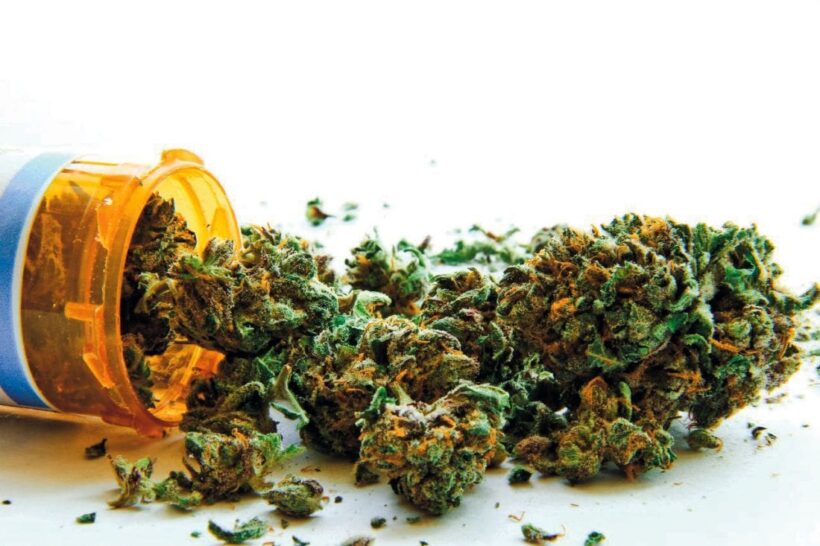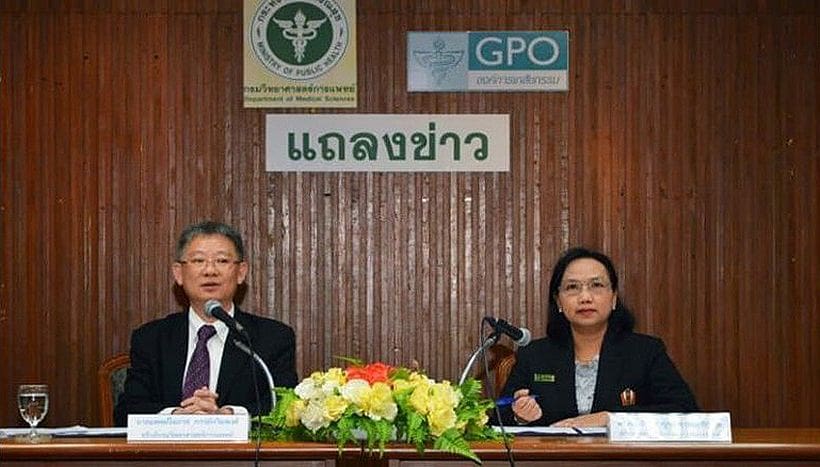Government ready to develop medications, rejects seized marijuana

Yesterday, a bill was passed with 145 votes, allowing marijuana to be used for medical and research purposes. Only one legislator abstained. The NLA’s Somchai Swangkarn said a vetting committee on the bill has also been established.
“We believe the NLA will take 60 days to deliberate this draft.”
The Nation reports that, over the period, he also expects relevant authorities to sort out cannabis-related patent issues after several civic organisations expressed concerns that all patent applications submitted to the Intellectual Property Department came from foreigners. If this is true, then once medical marijuana is legalised, foreign firms may try to monopolise the market.
“Government agencies should find ways to ensure that foreigners will not keep Thais away from the benefits of marijuana and kratom,” Somchai said.
NLA member Kitti Wasinondh hopes the assembly’s deliberation will ensure that the new law for medical marijuana can facilitate research in both public and private sectors.
“Even the government should not be allowed to monopolise the benefits of marijuana,” he emphasised.
Some research suggests that cannabinoids can be useful in the treatment of Parkinson’s, Alzheimer’s, cancer and more. With the prospect of marijuana being legalised for research and medical purposes, the Government Pharmaceutical Organisation (GPO) and some government agencies have, in fact, already launched a study in preparation for the development of marijuana-based medicines.
The police handed over 100 kilos of confiscated marijuana to the GPO last month for research.
However, the marijuana taken from drug rings is unfit for medical use as traces of pesticides, and heavy metals showed up in lab tests conducted by the Medical Science Department (MSD).
All three samples of marijuana from the confiscated lot contained insecticides – namely chlorpyrifos, and cypermethrin – as well as traces of lead, mercury, arsenic and cadmium. In fact, one sample had both insecticides, as well as arsenic and mercury.
MSD was told to conduct tests as GPO is looking into the possibility of using cannabis to develop sublingual drops for patients.
Opas Karnkawipong, MSD director-general, said on Friday the seized marijuana could not be developed into medication because it contained chlorpyrifos, a chemical farmers use to deal with pests.
Read more about this story in The Nation Weekend HERE.

Opas Karnkawipong, MSD director-general (left) and Nuntakan Suwanpidokkul, director of GPO’s Research and Development Institute (right) during a press conference at Department of Medical Sciences on Friday. PHOTO: The Nation
Latest Thailand News
Follow The Thaiger on Google News:
![Best weed shops in Khaosan Road, Bangkok [2025] | Thaiger](https://thethaiger.com/wp-content/uploads/2025/08/image1-220x150.jpg)

























